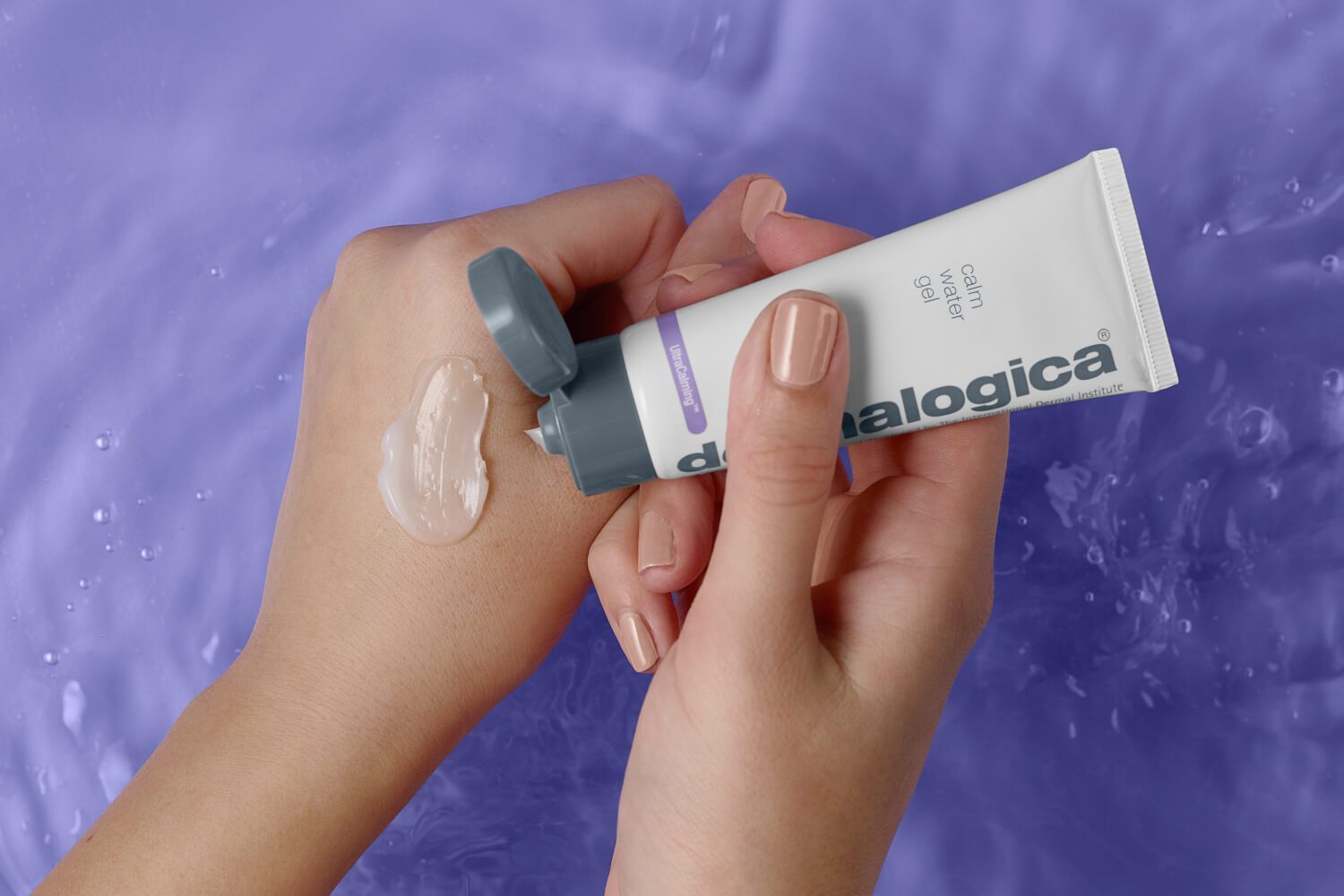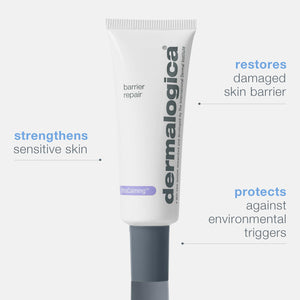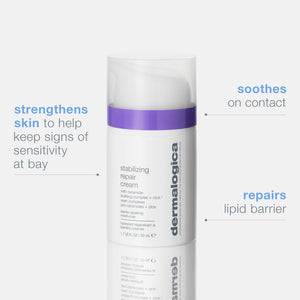4 min read
Sensitive vs. sensitized skin
Is there really a difference between sensitive and sensitized skin? Explore how skin reacts when it’s irritated and how to treat it.

Do you hide behind the painful (and often embarrassing) symptoms of sensitive skin?
Whether your skin is sensitive or sensitized, the symptoms are actually the same. Redness, dehydration, itching and burning.
signs of sensitive skin
- Thin skin texture with a translucent appearance.
- A feeling of tightness, which can indicate dehydration and lead to skin reactions from products.
- Redness or blotchiness. This signals over-reactive capillaries or a tendency toward rosacea.
- Flaking, peeling or cracking on the cheeks and forehead. This indicates dehydrated skin and impaired barrier function.
- Flushing and itching, or burning sensations, which can also be a sign of over-reactive capillaries.
- Small, rash-like bumps or breakouts (not to be confused with acne breakouts).
Another common trait of sensitive—and sensitized–skin is a compromised lipid barrier. A healthy lipid barrier helps keep skin healthy by holding water in and keeping environmental pollutants and microbes out. Picture your skin cells as tiny bricks. The “mortar” holding them together are lipids. A healthy lipid barrier helps keep skin hydrated and healthy by holding water in and keeping environmental pollutants and bad microbes out. When your skin is exposed to triggers that compromise the barrier, the result is redness, dryness, irritation and discomfort, otherwise known as – you guessed it – sensitive skin.
But did you know that there are actually two different scenarios to lead to these not-so-fun symptoms? Here they are. You can struggle on the daily with irritated skin based on your genetics (AKA sensitive skin) or you can get sensitive skin flare ups caused by outside factors in your environment (AKA sensitized skin.)
Knowing more about what causes your skin to react will help you determine if it is sensitive or sensitized so you can find out how to keep your skin strong and healthy.
sensitive skin you're born with
Sensitive skin is a weak protective function of the skin that can be genetically predisposed. When skin is sensitive its protective outer layer lets irritants, microbes and allergens pass through, causing adverse reactions like stinging, pain, redness or flushing. Genetically sensitive skin is considered more delicate because it has a lower amount of pigment, a thin epidermis, and blood vessels close to the skin surface, hence the appearance of redness. You may notice that you’re also prone to asthma and allergies. Sensitive skin can be passed down through generations – but there are ways to manage it.
sensitive skin caused by your environment (sensitized skin)
Sensitized skin can be triggered in anyone, regardless of your genes. It’s actually a reflection of your environment. Frequent irritability from lifestyle, irritants, cosmetic ingredients including alcohol, lanolin, fragrance and artificial color and other external factors can contribute to sensitized skin. Hard to avoid right? Ready for the good news? Avoiding your individual triggers can actually reduce or eliminate your symptoms. When these triggers can’t be avoided (think pollution, environment and temperature sensitivity), your symptoms of sensitized skin can be managed through skin care and lifestyle changes.
Your skin can be affected by any of the following factors:
 environment
environment
how to calm sensitive and sensitized skin
The heat can also lead to skin sensitivities like a heat rash, which happens when your sweat ducts get closed off. The moisture gets trapped under the skin and can lead to a rash made up of blisters or bumps!
The good news is that the skin – when healthy – is a pretty efficient filter of what's good versus what's bad on its own. And, since you can’t always avoid harsh environmental factors like pollution or extreme weather, here’s how to keep your skin calm, strong, and healthy.
Weightless water-gel moisturizer penetrates skin to lock in moisture.
Ultra-soothing moisturizer that soothes the skin on contact – helping to break the pattern of sensitive skin as they immediately comfort and help skin become more resilient over time.





